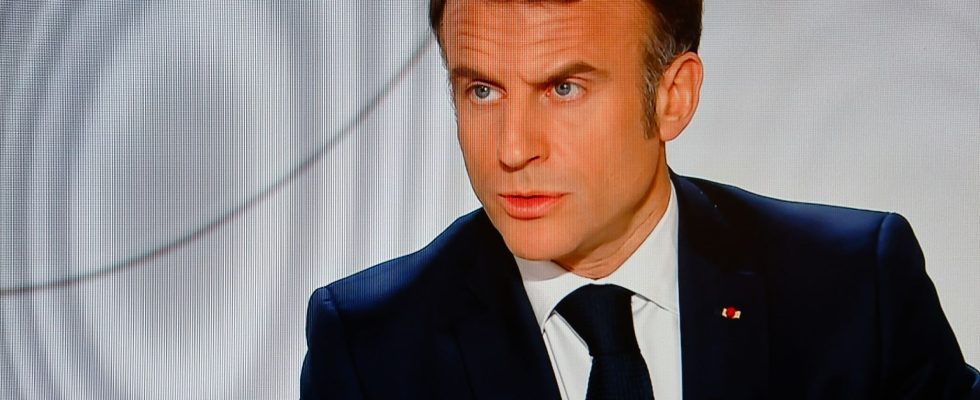Arcom, the audiovisual regulator, this Tuesday, June 4, called on the channels to “strictly respect the rules” of speaking times, before the interview with Emmanuel Macron on TF1 and France 2 on Thursday, three days before the European elections.
“All or part of the remarks made during this interview may be taken into account” in the speaking time of the list of the presidential camp, and the other lists must benefit in return from “equitable access” to the broadcasts, underlined the regulator in a press release.
“Arrangements” to take
The opposition had seized Arcom to protest against the intervention of the President of the Republic on Thursday at 8:00 p.m. on TF1 and France 2, also broadcast on the news channels of the two groups, LCI and Franceinfo. Three days before the European elections, they see it as support for the list led by Macronist candidate Valérie Hayer. The independent authority indicated this Tuesday that it had written to the TF1 and France Télévisions groups “so that they inform it without delay of the measures they intend to take” to balance speaking times. These arrangements must be taken “including in advance”, specifies Arcom.
The electoral campaign ends on Friday at midnight and the candidates will then no longer be able to speak publicly. That is to say only a little more than 24 hours for the oppositions to respond to the intervention of the President of the Republic.
In addition, Arcom said in its press release that it received several small candidate lists this Monday, worried about not benefiting from equitable access to the antennas. The authority “assured them of its complete vigilance to ensure the balance of the democratic debate on all television and radio channels”, she asserts.
“Fair access to the air”
Speeches by the President of the Republic during elections are governed by specific rules. They stipulate that interventions by the Head of State which “relate to the political debate linked to elections, in particular those which include the expression of support for a candidate or a list of candidates”, must be counted as speaking time linked to the vote. In this case, the other lists must benefit “in return” from “equitable access” to the air.
This therefore means that, for the same intervention, certain remarks by the President of the Republic can be taken into account in the electoral campaign and others not. At the end of April, Arcom thus estimated that a nearly two-hour speech by Emmanuel Macron at the Sorbonne on the subject of Europe should be counted in its entirety as speaking time for his camp, after which also opposition complaints.
Since April 15, TV and radio channels have been required to ensure “equitable access to the air” between lists. But fairness does not mean equality: the airtime of each list depends on its results in previous elections, polls or its ability to “animate the campaign” (via, for example, public meetings).
